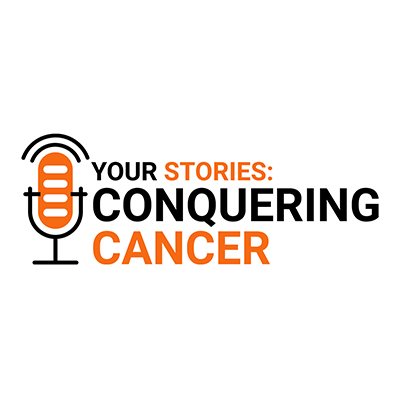
Conquer Cancer, the ASCO Foundation, developed the podcast series Your Stories: Conquering Cancer to showcase unscripted conversations between patients, doctors, and the family and friends who conquer cancer with them.
In the episode "Making Advocacy Count," Don Dizon, MD, FACP, FASCO, speaks with Scout, MA, PhD, executive director of the National LGBT Cancer Network, about the unique challenges facing LGBTQ+ people with cancer, including why it matters more than ever for LGBTQ+ people with cancer to be included and welcomed into the cancer community. They tackle tough topics in LGBTQ+ cancer care, from health disparities and data collection to patient-provider communication and pronoun inclusion. It's a story about the importance of equity for every person with cancer, regardless of who they are and whom they love.
The challenges LGBTQ+ people face in health care settings
Creating relationships and building trust with doctors can be uniquely challenging for people who are LGBTQ+. Dr. Dizon reflects on the embarrassment he experienced having to legitimize his own parenthood to his child’s pediatrician.
“I remember thinking this happened to me as an oncologist, as a professional,” says Dr. Dizon. “And I can just imagine the types of oppression that our community goes through.”
Coming out is a lifelong process that many LGBTQ+ people repeat daily. This is often because of the open, and sometimes more hidden, homophobia and transphobia they face from others. Scout shares one of his many experiences while seeking mental health care for his son.
“It took me until about the third meeting with a psychiatrist to realize all he wanted to talk about was the fact that I am trans, which had nothing to do with my son’s mental health whatsoever,” says Scout.
Disparities, data, and disclosure
Scout suggests doctors can improve care for LGBTQ+ people with cancer by adding a line on intake forms that allows patients the opportunity to disclose their gender and/or sexual orientation at the initial visit. LGBTQ+ communities have long faced structural barriers to cancer care due to inadequate data collection and exclusion from clinical trials. Giving people with cancer the option to share their identities can increase representation, which can in turn help researchers improve health outcomes for LGBTQ+ people with cancer.
“Nothing in our health world gets fixed without data as a starting point,” says Scout. “You cannot write a proposal and get it approved, even research a topic, unless you have enough data to show that there's a potential problem. We have some research showing that even in something as unsettling as an E.R. (emergency room) situation, 90% of LGBTQ+ people are willing to disclose if you ask them on a health record. What seems like a little innocuous LGBTQ+-related question on that health record is actually one of the most powerful questions we have for changing our health.”
Including the option for people with cancer to disclose their gender and/or sexual orientation on intake forms also gives doctors the opportunity to make their LGBTQ+ patients feel seen and valued. Plus, it gives them the opportunity to ask about their partners and support systems.
“One of the saddest things we hear is when we hear from a survivor who says that they didn't bring their partner because they were afraid,” says Scout. “And cancer is such an experience where you need all the support you can get.”
The power of pronoun inclusion
Scout says introducing yourself using your pronouns is a clear way for everyone—especially health care providers—to express clear support for LGBTQ+ people with cancer.
“In my community, it's been common for quite a long time that we ask people the pronouns or we introduce ourselves with pronouns because they may not be what you expect,” shares Scout. “They may not be what you're reading from us whatsoever. If you introduce yourself with pronouns, you're not saying that you're a queer person by any means. You're simply saying, ‘I'm trying to be welcoming.’”
